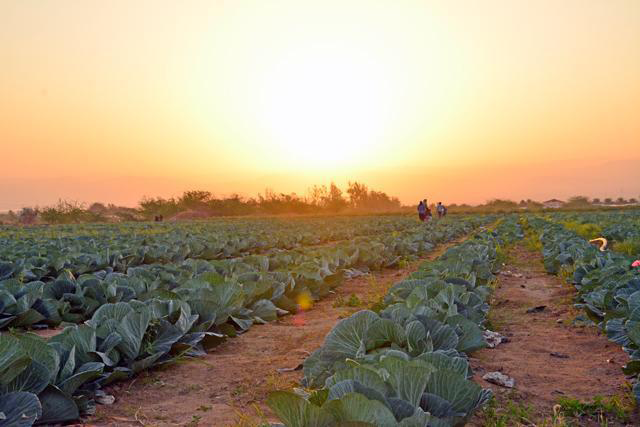You are here
Jordan’s youth use innovation to ensure national food security
By Camille Dupire - Oct 30,2017 - Last updated at Oct 30,2017
AMMAN — “We are trying to create a real life ‘Farmville’ in Jordan to ensure food security for all,” said Yousef Wadi, the founder of Nestrom, an end-to-end platform that connects agricultural producers to tech experts with the aim of developing smart farming in the Kingdom.
Wadi is one of many local entrepreneurs who have implemented innovative strategies to ensure a more sustainable supply of food commodities in a country that still maintains some pockets of food insecurity despite its high status in the Human Development Index.
While notable improvements in the citizens’ access to food have been achieved due to joint efforts by the government, UN agencies and local NGOs, Jordan still remains 55th out of 113 countries in the world in the global food security index 2017.
The presence of some 1.4 million refugees on the Jordanian soil has strained even further the already scarce water and food resources. Moreover, the recurrent drought, urbanisation and desertification have made agricultural production insufficient, forcing Jordan to import for ensuring sufficient food supply, according to a recent survey by REACH and WFP.
Despite plans to address the influx of refugees, such as Jordan’s National Resilience Plan and Response Plan, national social protection strategies lack food security as a core component in their design and result frameworks, a report by the Food and Agriculture Organisation recently indicated.
To counter these challenges, Wadi founded Nestrom about a year ago, aiming to use technology to help Jordanian farmers enhance their production by tracing the agricultural produce from the day it is seeded up until it enters the market.
“With the dramatic jump in population experienced in the last few years, Jordan has become in dire need for innovative solutions in the agricultural sector,” Wadi told The Jordan Times, noting that although Jordan is “doing very well in the field of agriculture, we need to look ahead to ensure sustainable solutions to future challenges”.
“Nestrom helps farmers to maximise the yield, efficiency and profitability of their production by tracking their spending, human labour in their farms and many other aspects, all in real time. We assist local producers in automating their agricultural farms so they can make swift adjustments to improve their production efficiency,” Wadi explained.
Aiming to “transform all farms into smart farms”, Nestrom seeks to empower enterprise farms and farm owners to enhance the agri-businesses in order to cope with the increasing number of mouths to feed.
“We should not leave things to the last minute, we need to plan ahead to ensure that agricultural processes are adapted to changing contexts and this can be done with the help of tech experts,” he explained.
“Jordan has a lot of agricultural land and a great number of exporting farmers who are doing an amazing job. But we need to scale this up by getting everyone involved,” Wadi continued.
The young entrepreneur, who has been holding talks with officials to expand the number of smart farms across the Kingdom, called on fellow Jordanians to harness their skills and capacities to develop more innovative solutions for ensuring national food security.
Another young Jordanian, Malak Jehad Al Aiekly, who defines herself as “passionate about food and agriculture commodities industries”, founded Golden Wheat for Grain Trading Ltd. a few years ago, becoming one of the few female grain traders in the region.
“I want to bring the best quality product to my country. As a local partner, I make the liaison between international grain and commodities companies and the Jordanian government to provide the national market with the most competitive produce,” she told The Jordan Times in a phone interview.
Highlighting the strategic importance of grains in the daily life of Jordanians, she stressed the need to insert Jordan as a key actor in the international market to ensure a sustainable supply of agricultural commodities despite global fluctuations.
“I serve as a local agent to create a mutual understanding between all parties involved, including the Ministry of Trade and Industry, the Ministry of Agriculture and international companies,” she continued, adding that these partnerships also help bring foreign investments in Jordan’s agricultural sector.
“According to the Prime Ministry directives, Jordan should always have a six month grain supply in stock. Currently, we have achieved an eight month supply, which is a great success for the Kingdom’s food security status,” she concluded.
Related Articles
AMMAN — The agricultural industry plays a crucial role in fostering sustainable growth and economic resilience for the Jordanian economy, ac
AMMAN — Minister of Agriculture Mohammad Daoudiyeh recently said that assistance must be provided to the fishing industry to overcome obstac
AMMAN — The Korea Trade-Investment Promotion Agency in Jordan (KOTRA Amman), in cooperation with the Jordan National Agricultural Research C














